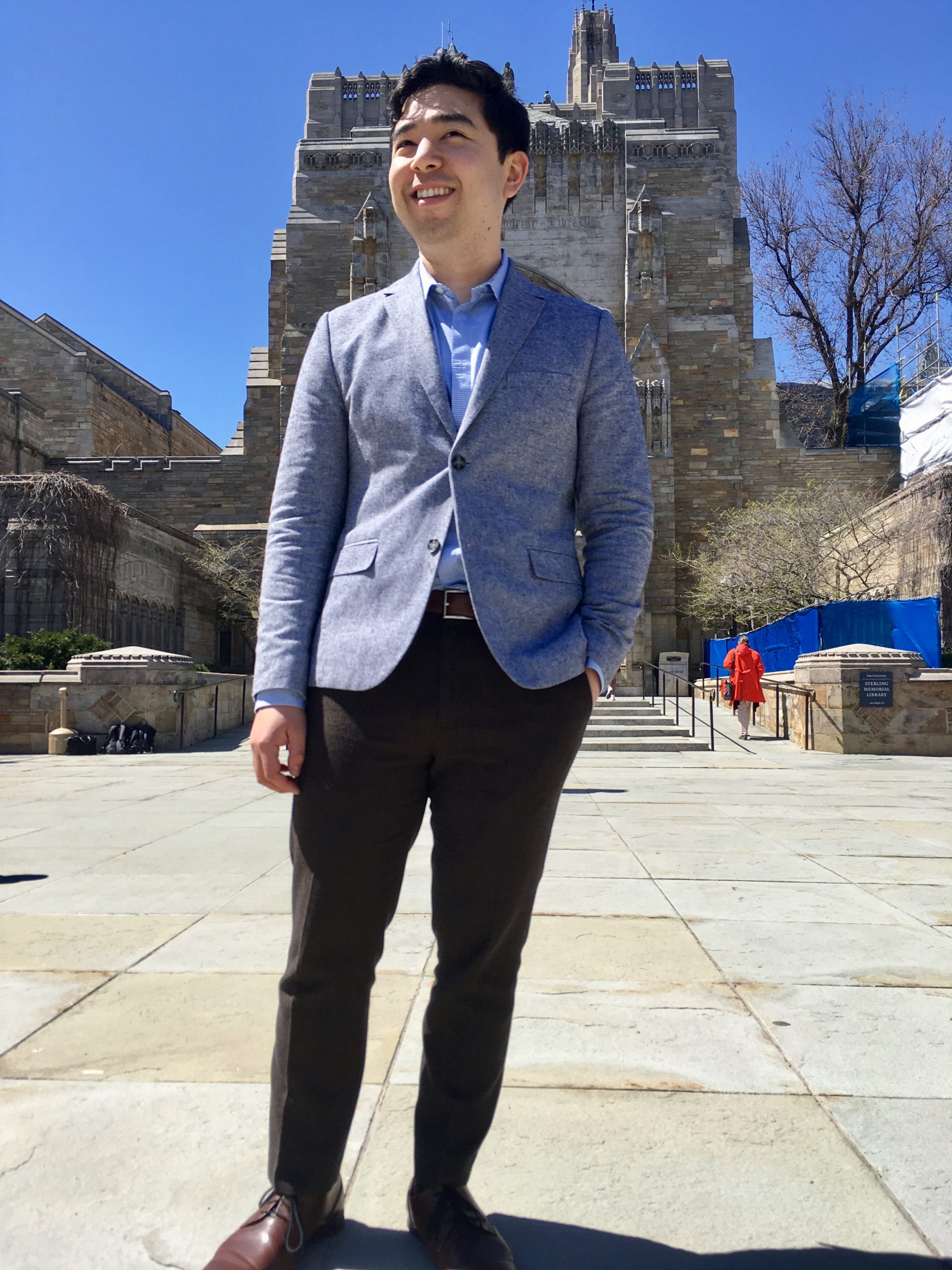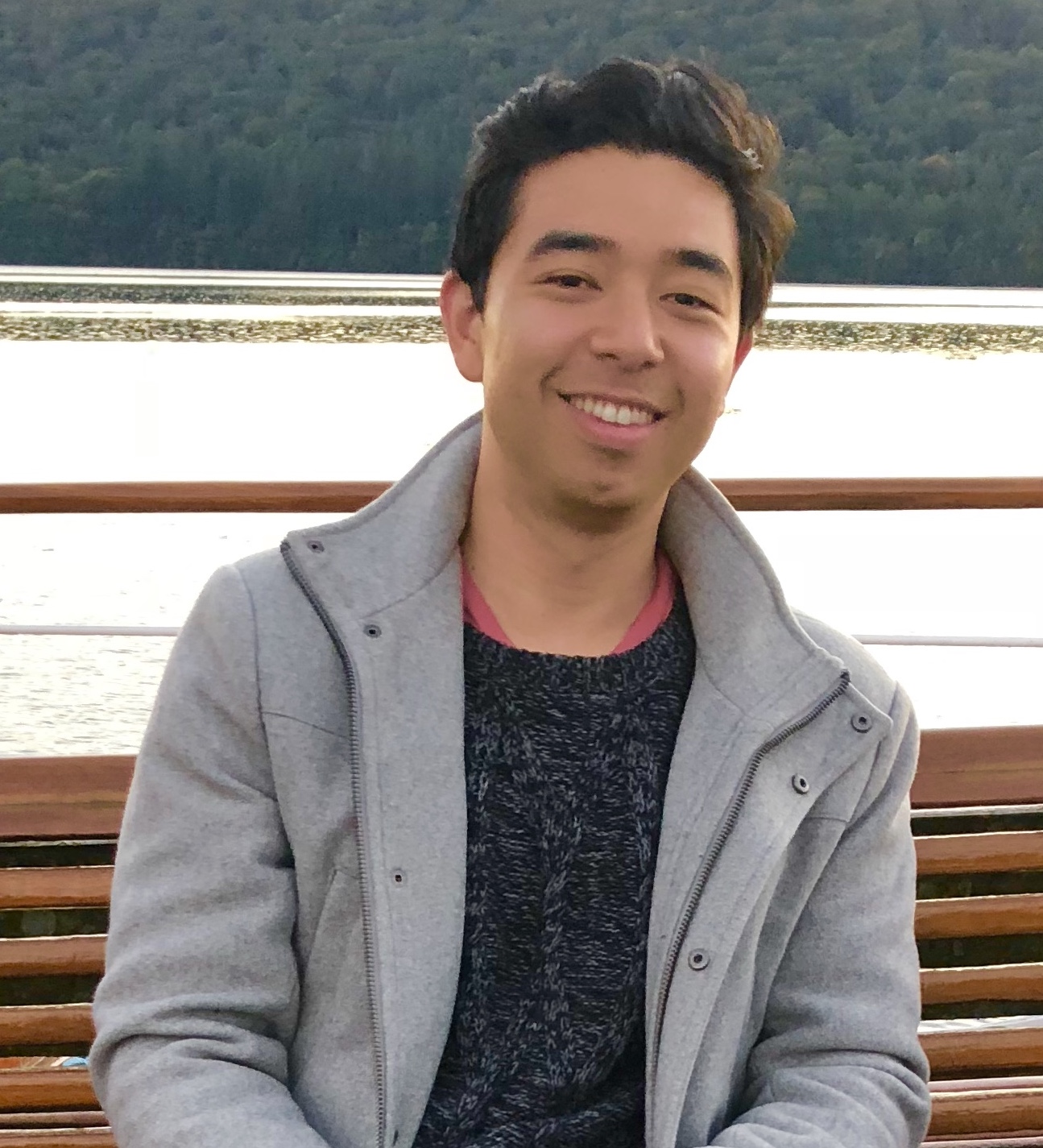
Robert Henderson speaks about what led him to do a PhD in moral development and pro-social behaviour.
I am interested in what influences people to behave positively, in why people think the way they do and what makes them change their minds.
Robert Henderson
Robert Henderson is interested in moral development and in what encourages us to behave in positive ways towards each other.
His PhD in Psychology begins this autumn. “I am interested in what influences people to behave positively, in why people think the way they do and what makes them change their minds,” he says.
He says his curiosity about how social norms are established is in part due to him growing up as an outsider.
As a foster child Robert, whose birth mother is Korean, shared foster homes with mainly African American and Hispanic children. At high school in a small Californian town he was one of only five Asian students. In the air force his politics were more liberal than many of his peers and at Yale his background was different to many of his fellow students.
Robert was born in Los Angeles. He doesn’t know his father and hasn’t seen his biological mother since he was very young. He was taken into foster care when he was two and spent five years in different foster homes in Los Angeles until he was adopted by a family from a small agricultural town in North California.
Although he had had a disruptive early childhood, Robert was a very curious child, who got good grades despite finding the structured environment of school challenging. His grades improved as his home life became more stable, but that changed again when his adoptive mother divorced his adoptive father. Her new partner was shot when Robert was 14 and had to undergo multiple operations which Robert says changed the dynamics at home. The couple invested their insurance settlement in property, but it was just before the 2008 recession when property was the worst investment and they started to haemorrhage money. They lost their home and the other properties they had bought. Robert’s mother and her partner moved to another city. Robert was finishing high school and so opted to move in with a friend.
Air force
He knew his grades were not going to be good and he felt he was not ready to go to college so he opted to join the air force. “It was another way to find a path to success and I felt I could do something good in the process,” he says. Robert served as an electronic warfare technician in several countries, including Qatar, Kyrgyzstan and Germany. His role involved doing repairs on defence and radar systems and tracking devices. Over the eight years he was in the force, he rose up the ranks to the post of debrief supervisor where he liaised between pilots and technicians.
As his contract was coming to an end, Robert considered what he could do. He didn’t want to stay in the air force on a long-term basis so he investigated college courses for veterans and came across Yale Veterans’ Association. He spoke to the vice president over Skype and found out about a two-week summer programme to prepare veterans for college which taught skills such as how to write an academic essay. Robert says the course gave him the confidence to email Professor Paul Bloom about his desire to study psychology. He now works in the professor’s Mind and Development Lab.
He had taken night courses while in the military which earned him some college credits and these helped to win him a place at Yale. He says there was some element of culture shock when he got there due to the big difference between his social background and that of some of the students. Robert knew he wanted to study Psychology and after the first semester he asked to work as a research assistant in Professor Bloom's Mind and Development Lab.
Moral obligation
The research projects he is working on for his senior thesis focus on proportionality and punishment – specifically, whether young children believe punishment should be tailored to the moral transgression. “I am curious about the idea of punishment with regard to moral violations – what the punishment should be and how severe it should be,” he says. Another project he is working on looks at people’s sense of moral obligation to strangers. For both projects he compares children and adults’ perceptions. For instance, his research has found that young children distinguish between proportionate and disproportionate punishment; they also have a different sense of moral obligation than adults.
While he has been at Yale, Robert has also done research at Stanford University’s Social Learning Lab, studying social cognition with a particular focus on the ability to infer the emotional states of others.
Robert contacted his Cambridge supervisor, Dr Simone Schnall, because he was interested in her work on the role of disgust in morality and she encouraged him to apply to the university to do his PhD. He begins in the autumn and will be based at St Catharine's College.
He feels the Gates Cambridge mission matches his own interests. At Yale he has been working at a tuition centre for disadvantaged children who are having trouble in school. “It has been a very rewarding experience. I see myself in these kids. A lot of them do not have good home lives. Many lack confidence. I understand where they are coming from. They do open up about their lives and I can see them improving,” he says.
He has also been a mentor for a veteran who overcame a disadvantaged upbringing and found his footing in the marines. He is now at Brown. “It feels good to help other people,” says Robert. “A lot of people helped me. It felt like an obligation originally, but then I recognised the fulfillment it gave me and those I was helping. Everyone wins.”
His research is in part inspired by that work. “I want to gather empirical data to explore whether pro-social behaviour is a win win. If so, I feel this would encourage more of it. From the research I've reviewed thus far, it seems money is not everything – it is relationships which are more important,” he says.

Robert Henderson
- Alumni
- United States
- 2018 PhD Psychology
- St Catharine's College
Rob Henderson is the best-selling author of Troubled: A Memoir of Foster Care, Family, and Social Class. He grew up in foster homes in Los Angeles and in the rural town of Red Bluff, California. After enlisting in the U.S. Air Force at the age of seventeen, he subsequently attended Yale on the GI Bill and was then awarded the Gates Cambridge Scholarship to study at the University of Cambridge (St. Catharine’s College), where he obtained a PhD in psychology in 2022. Rob’s writing has appeared in the New York Times, Wall Street Journal and Boston Globe, among other outlets, and his newsletter is sent each week to more than fifty thousand subscribers.
Previous Education
Community College of the Air Force
Yale University












